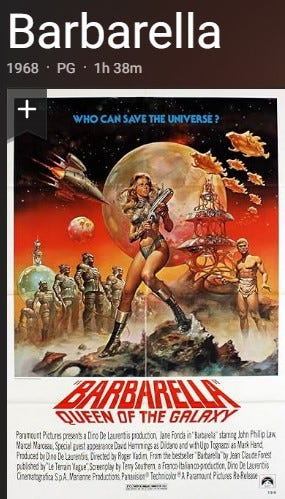Number 5. USA Today. Microsoft announces plan to reopen Three Mile Island to support AI.
In March, 1979, a mechanical failure at a U.S. nuclear power plant caused a national panic. A runaway reactor threatened to “render an area the size of the state of Pennsylvania permanently uninhabitable.”
Also in March, 1979, a second mechanical failure at a different U.S. nuclear power plant caused another national panic. A partial reactor meltdown allowed a small release of radioactive material before it could be shut down.
The first incident was fiction, in The China Syndrome, the Hollywood movie set in California, starring Jack Lemmon, Jane Fonda and Michael Douglas. The second one was 12 days later, the actual occurrence near Harrisburg, Pennsylvania.
No release of radioactive material is good news, but in the second case — a real event at Three Mile Island power plant in Pennsylvania — there was no damage to public health. It is true that 140,000 residents were evacuated from the area, which made great news footage and stoked widespread fear among endless TV expert interviews, but I think everyone eventually returned home.
One could argue the real destruction issuing from the TMI event (3 Mile Island, not “too much information”) was the long-term damage to the nuclear power industry. Who can forget the sincere look of consternation on Jane Fonda’s face as she contemplated the destruction of California?
Face it: If Barbarella, Queen of the Galaxy, took it seriously, who are we to discount it?
But now, it appears nuke is cool again.
Microsoft announced it has signed a 20-year contract with Constellation Energy to reopen the Unit 1 reactor at Three Mile Island, which was turned off 5 years ago. The plan is to power the tech giant’s Artificial Intelligence initiative. The rejuvenated plant will generate 800 megawatts of electricity, offer 3,400 new jobs, and deliver $16 billion in state tax revenues.
The article does not say what Microsoft is paying Constellation Energy. It must be substantial to afford that kind of tax bill. Which means AI is a big bet.
Saving the world from nuclear destruction is one thing, but real cash is quite another.
I’m not sure how the world will survive this plunge into deadly and unpredictable nuclear power. Just think of all those U.S. Navy ships that have blown up from bad reactors that have been sailing for over 50 years, and all the aquatic species that mutated and went extinct from the waste.
Oh wait, I guess there weren’t any ships that blew up, or any fish that were damaged. At all.
But I do wonder at a technology that requires such overwhelming quantities of electric power and is moving forward so quickly. Could we just stop and think about this? I guess not.
Number 4. Phys dot org. Low gravity in space travel weakens heart muscle.
This sort of story will drive Captain Picard to the exercise gym on the Enterprise holodeck.
Researchers at Johns Hopkins grew laboratory samples of human heart muscle tissue, boxed them up in a special high-tech enclosure, and sent them aboard the International Space Station for 30 days of observation.
An identical setup was kept earthbound as a control group.
The space traveling set was monitored with a 10-second burst of electronic data every 30 minutes, for a month, to study the effect of weightlessness on the heart at the cellular level. Results were enlightening but not necessarily happy.
The ISS heart muscle tissue lost strength and developed arrhythmia. Protein bundles in muscle cells became disordered. Mitochondria became distorted and began to lose the physical characteristics that produce energy.
Similar results have been detected in returning astronauts, but once the person is back to normal gravity, the body can rejuvenate itself. Long-term, however, this research offers guidance on physical conditioning and potential drug treatments to avoid damage.
The expedition to Mars (which, if Elon keeps this up, is where we are headed) will need to have this figured out well before that 18-month round trip.
Number 3. Gen Z take aesthetic photos of TSA trays.
As though we cared.
This story is a good example of, “Just because you can, doesn’t mean you should.”
Younger airline travelers have begun taking pictures of their belongings stuffed into those gray plastic trays at airport security, and then posting the photos on social media.
“TSA Tray Aesthetic” has become a thing, as Gen Z’ers take time to tastefully arrange sandals, headphones, wallets, keys and ballcaps, and then take a quick smartphone photo before sending the tray through the tunnel.
This is not without disruption to the line of those of us who thought we were here merely to get from Point A to Point B in the shortest amount of time. Complaints from fellow travelers have arisen.
This has led to some airport-bound travelers arranging the pic at home before Uber-ing to the airport. They purchase the tray on Amazon and take time to carefully arrange their things in the tub before taking the picture. Then, presumably, it all gets stuffed into pockets for the trip.
Amazing.
I am left to wonder how much deeper the shallow end of this intellect-free pool can become.
Number 2. ABC dot net dot au. Facebook scrapes every Australian adult user’s photos to train AI.
But it seems Facebook DOES care about your pointless photos.
In Australia, it appears there is no legal requirement that social media platforms offer an “opt out” from having your photos appropriated.
(As a brief aside: Why on earth would you post a photo of yourself to Facebook that you did not want everyone to see? But in a world where nuke power is destroyed because of a movie and photos of TSA trays become nouveau art, maybe I’m just out of touch.)
The value of these photographs is that they can be used to train Facebook’s AI tool. How that works also remains a mystery to me, but I guess I can accept it. As soon as I figure it out, I can maybe join the millions who are looking for ways to monetize the process.
When pressed by an Australian government minister, a Facebook representative explained that there has been a privacy setting available on that platform for 15 years. If you wanted your 2007 post to remain private, you should have set it that way in 2007. Otherwise, it’s fair game.
In Europe, there is greater legal uncertainty as to whether taking personal photos for commercial purposes is legal. So, in that case, Meta (Facebook) offered an opt out option. But in Australia there has never been an issue of privacy. If Australia wants privacy, maintains Facebook, they can pass a law to that effect.
Meanwhile, the photo harvesting will go on.
I’d still like to know how they will use a picture of my TSA tray to make AI more intelligent.
Number 1. New York Post. Chinese zoo admits pandas are really just dogs.
Talk about cruelty to animals! I really never liked zoos because of the captivity thing. But this story takes exploitation to another level.
The Shanwei Zoo has featured a unique breed of panda bear with the usual distinctive black-and-white markings. Fur on the legs and ears, and especially around the eyes, is black, while the rest of the body appears white.
The little pandas, no bigger than a tiny chow chow dog (a breed of spitz from northern China, according to the article) are attractive and active.
But when one of them started to bark, and pant with his tongue hanging out, it became clear the alleged panda bear WAS a chow chow dog.
Zoo keepers had dyed the fur of the chow chows to resemble the markings of a panda bear, and then put them on display as real panda bears.
Say what??
When challenged why they did this, zoo officials answered that they had no panda bears available, and this seemed a reasonable substitution.
Really? That’s what you’re going with?
* * * * *
Now that you have invested 10 minutes here that you will never get back, thanks for joining The Alligator Blog for Friday, September 27, 2024.
To make yourself feel slightly better, take some positive action:
Cancer patients in Wichita, Kansas, have the opportunity to be encouraged and strengthened for their battle by accepting a complimentary copy of Alligator Wrestling in the Cancer Ward: How a Christian Tough Guy Survived Leukemia with Gallows Humor, One-Liners and a Praying Posse. It is a first-hand account of my death-defying and occasionally hilarious 3-month hospital stay in 2022.
One of the Amazon reviewers said: “I never thought I would laugh so much reading of someone’s battle with leukemia.”
Your gift to Via Christi Foundation makes distribution of these books possible. Last week I was able, because of the generosity of those of you in the Alligator Posse, to deliver 20 copies to the Ascension St. Francis Cancer Center (radiology) for distribution in their waiting room.
Cancer is always in the news, and it is easy to get hardened to the reality of the struggle. For those who have recently received the diagnosis for themselves or a loved one, however, it is a very real, here-and-now death threat. Offer them a gift of hope and faith and encouragement. Click the link below.
Have a good weekend! Take pictures of inconsequential items and share them pointlessly!



















Share this post